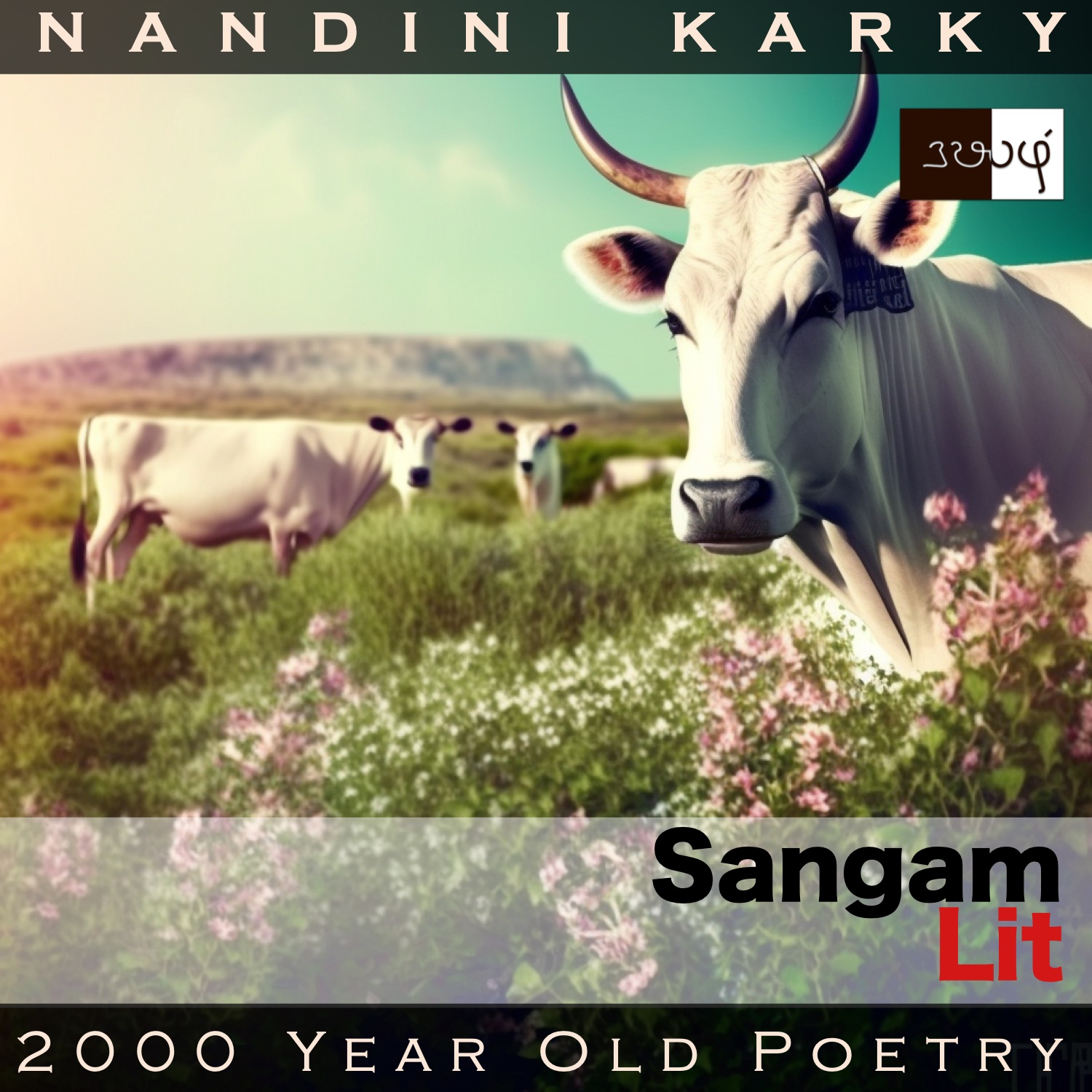Podcast: Play in new window | Download
Subscribe: Apple Podcasts | Spotify | Amazon Music | Android | iHeartRadio | TuneIn | RSS | More
In this episode, we perceive the past prosperity of the king’s land, as portrayed in Sangam Literary work, Puranaanooru 117, penned about the Velir King Vel Paari by the poet Kabilar. Set in the category of ‘Pothuviyal Thinai’ or ‘Miscellaneous matters’, the verse details the unceasing natural wealth of the king’s country during his reign.

மைம்மீன் புகையினும், தூமம் தோன்றினும்,
தென் திசை மருங்கின் வெள்ளி ஓடினும்,
வயலகம் நிறைய, புதல் பூ மலர,
மனைத்தலை மகவை ஈன்ற அமர்க் கண்
ஆமா நெடு நிரை நன் புல் ஆர,
கோஒல் செம்மையின் சான்றோர் பல்கி,
பெயல் பிழைப்பு அறியாப் புன்புலத்ததுவே
பிள்ளை வெருகின் முள் எயிறு புரையப்
பாசிலை முல்லை முகைக்கும்
ஆய் தொடி அரிவையர் தந்தை நாடே.
Continuing in this series of songs contrasting the past and present, we hear of the lush spread of King Paari’s land in this one. The poet’s words can be translated as follows:
“Even if Saturn seemed smoky, even if a comet appeared, even if Venus ran away in the southern direction, his fertile sceptre would fill fields, make flowers bloom on bushes, and let huge-eyed cows that gave birth to calves at home, graze on fine grass in the land; Wise and knowledgeable people would be many in this land, which knew not what it was to have the rains fail. Such a land has now fallen to a barren state – That country, where wild jasmine flowers used to bloom, akin to the teeth of young wild cats, belonging to the father of these maiden wearing well crafted bangles!”
Let’s explore the nuances here. The poet starts by talking about some rare astronomical phenomenon such as the Saturn planet having a smoky look, or when a comet star would appear on the skies, or the case when the bright Venus would run away to the South. Other than the image of a comet in the sky, I could not connect to the other instances mentioned as I’m not an acute watcher of the skies. Even if I were, in the polluted cities of the now, not only Saturn, all celestial objects are sure to look smoky. But I understand that this was unusual in the skies of this poet’s time. He talks about these phenomenon only to say that even if such unfavourable events happened in the night sky, even then nothing would change in Paari’s land. Fields would continue to bloom bright, bushes would be filled with flowers, and cows that had just given birth would be grazing to their heart’s content on the fine grass of this prosperous land. And, why is it prosperous? Only because of the king’s unerring rule over the domain. Also, good and wise people would fill the land and such a land never knew what it was to be without rains.
That was in the past, the poet says, talking about how the country, where wild jasmines bloom, akin to the teeth of wild cats – the one belonging to the father of these bangle-clad maiden had now turned barren without his presence. A song which connects the goodness of a ruler to the wealth of his nation. This ancient verse reminds me of a strong belief in Tamil culture even today that the rains will fall on the land only when good people live there, something that crops up in conversations among people, especially those in the rural areas. Fascinating how a core thought survives in spirit in a place in spite of the melting crucible of time and change!




Share your thoughts...